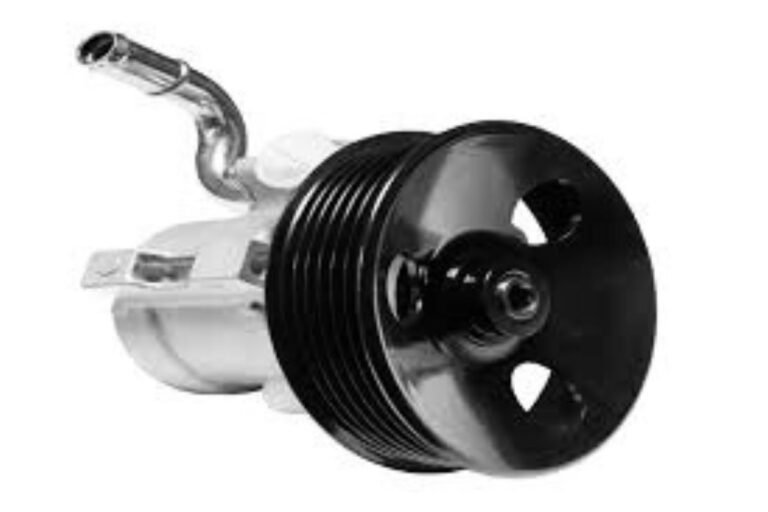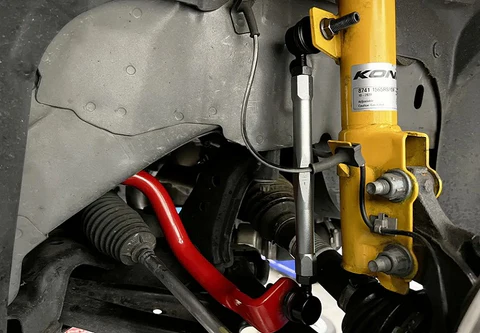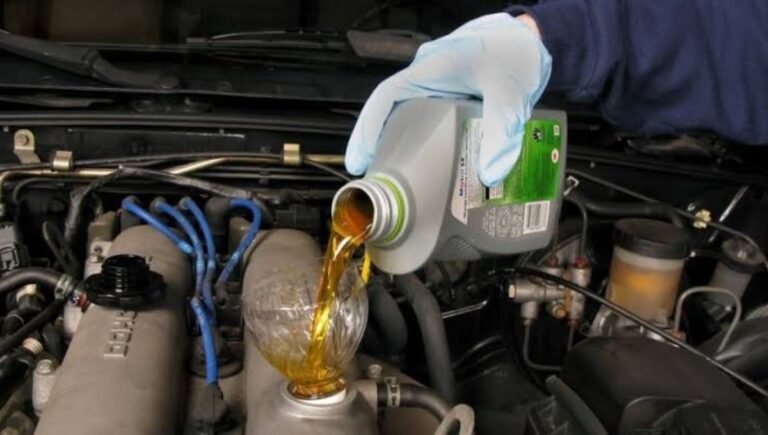Can Bad Tires Make Your Steering Wheel Shake?: The Troubling Truth
Yes, bad tires can cause your steering wheel to shake. Worn-out or unbalanced tires can lead to steering wheel vibrations, affecting the overall driving experience.
When you’re behind the wheel, a smooth and stable ride is essential for safety and comfort. If you’re experiencing a shaky steering wheel, it could be a sign of tire issues. Bad tires, whether due to uneven wear, lack of proper inflation, or other damage, can disrupt the balance of your vehicle, resulting in steering wheel vibrations.
Addressing tire problems promptly is crucial for maintaining road safety and preventing further damage to your vehicle. In this blog post, we’ll explore the impact of bad tires on steering wheel shake and discuss the importance of regular tire maintenance for a smoother and safer driving experience.
The Troubling Shake: Steering Wheel Vibrations
When your steering wheel shakes, it can be a sign of underlying issues with your tires. The vibrations can indicate problems that need attention to ensure your safety on the road.
Symptoms Of A Shaky Steering Wheel
- Vibrations felt in the steering wheel while driving.
- Uneven tire wear or visible tire damage.
- Difficulty maintaining control of the vehicle.
When The Shake Occurs: Speed Factors
Steering wheel vibrations can occur at various speeds. Higher speeds may intensify the shake, while lower speeds might make it less noticeable. It is essential to pay attention to when the shaking occurs to diagnose the root cause accurately.
Bad Tires As Culprits: A Common Cause
Bad tires can cause your steering wheel to shake due to imbalanced weight distribution and uneven wear. This issue can lead to unsafe driving conditions and should be addressed promptly by a professional mechanic.
Tire Wear And Tear
If you are experiencing a shaking steering wheel, bad tires could be the culprit. Tire wear and tear is a common cause of this issue. Over time, tires can become worn or damaged, causing them to lose their grip on the road. This lack of traction can lead to vibrations and shaking in the steering wheel.Out Of Balance Tires
Another cause of steering wheel shake is out of balance tires. When your tires are out of balance, they can create vibrations that are felt throughout the car. This can cause your steering wheel to shake or vibrate, especially at higher speeds. It is essential to get your tires balanced regularly to prevent this issue from occurring. If you are experiencing steering wheel shake, it is essential to get your tires checked as soon as possible. Bad tires can lead to serious safety issues while driving, including loss of control and accidents. Regular tire maintenance can help you avoid these problems and keep your vehicle running smoothly.Wheel Alignment Woes
The Impact Of Misalignment
Wheel misalignment can lead to a variety of issues, including uneven tire wear, steering wheel vibrations, and decreased fuel efficiency. When your vehicle’s wheels are not properly aligned, it can cause your steering wheel to shake, especially at higher speeds. This can not only be uncomfortable for the driver but also pose a safety hazard on the road. Proper wheel alignment is essential for ensuring a smooth and stable driving experience.
Signs Of Alignment Issues
- Steering wheel vibrations or shaking
- Uneven or rapid tire wear
- Pulling to one side while driving
- Off-center steering wheel when driving straight
Suspension System And Steering Wheel Stability
Bad tires can cause your steering wheel to shake, affecting the stability of the suspension system. Worn-out or unbalanced tires can lead to steering wheel vibrations, compromising the overall driving experience and safety. Regular tire maintenance is crucial to ensure smooth steering wheel operation and optimal suspension performance.
Suspension Components Explained
The suspension system of a vehicle plays a crucial role in maintaining stability and ensuring a smooth ride. It consists of various components that work together to absorb shocks and vibrations, keeping the wheels in contact with the road surface. Understanding these components is essential to grasp how they affect the steering wheel stability. The main suspension components include: 1. Shock absorbers: These hydraulic or gas-filled devices dampen the oscillations of the springs, preventing excessive bouncing and ensuring better control of the vehicle. 2. Coil springs: These helical-shaped springs support the weight of the vehicle and absorb impacts, providing a comfortable ride and maintaining tire contact with the road. 3. Control arms: Also known as A-arms, these connect the suspension system to the chassis and allow for vertical movement of the wheels. 4. Struts: A combination of a coil spring and a shock absorber, struts provide structural support and help maintain wheel alignment. 5. Stabilizer bar: This bar connects the suspension components on either side of the vehicle, minimizing body roll during cornering and improving stability.How Suspension Affects Steering
The suspension system and steering are interdependent, as any issues with the suspension can directly impact the steering wheel stability. Here’s how the suspension affects steering: 1. Uneven tire wear: Worn-out or imbalanced suspension components can cause uneven tire wear. This uneven wear creates imbalances in the tire’s weight distribution, leading to steering wheel vibrations. 2. Misaligned wheels: A faulty suspension system can result in misaligned wheels. When the wheels are not properly aligned, the steering wheel may shake or pull to one side, affecting the vehicle’s handling and stability. 3. Reduced traction: A compromised suspension system can affect the tire’s ability to maintain traction with the road surface. This reduced traction can result in steering wheel instability, especially during cornering or rough road conditions. 4. Excessive body roll: When the suspension system fails to control body roll during cornering or sudden maneuvers, it can affect the steering wheel stability. Excessive body roll can make the vehicle feel unstable and cause the steering wheel to shake or vibrate. In conclusion, the suspension system plays a crucial role in maintaining steering wheel stability. Any issues with the suspension components can lead to vibrations, misalignment, reduced traction, and excessive body roll, affecting the overall handling and safety of the vehicle. Regular maintenance and timely repairs of the suspension system are essential to ensure a smooth and stable driving experience.Brake Problems And Steering Feedback
Bad tires can indeed cause your steering wheel to shake, leading to poor steering feedback. It’s crucial to address any brake problems and replace worn-out tires to ensure a smooth and safe driving experience. Don’t overlook these issues as they can impact your overall control of the vehicle.
Warped Rotors And Steering Response
When it comes to brake problems, one issue that can cause your steering wheel to shake is warped rotors. Warped rotors occur when the brake pads apply uneven pressure to the rotors, causing them to become distorted over time. This can result in vibrations that are felt through the steering wheel, especially when braking at higher speeds. Warped rotors can affect the steering response of your vehicle. As you apply the brakes, the uneven surface of the rotors can cause the brake pads to make inconsistent contact. This can lead to a pulsating feeling in the steering wheel, as well as decreased responsiveness when turning or maneuvering the vehicle.Brake System Components To Watch
To ensure optimal steering feedback and avoid a shaking steering wheel, it’s important to keep an eye on various brake system components. Here are some key components to watch: 1. Brake Pads: The brake pads are responsible for creating friction against the rotors to slow down or stop the vehicle. Worn or damaged brake pads can lead to uneven braking and contribute to steering wheel vibrations. 2. Rotors: As mentioned earlier, warped rotors can cause steering wheel shaking. Regularly inspect the rotors for signs of warping, such as visible grooves or an uneven surface. If necessary, have the rotors resurfaced or replaced. 3. Calipers: The calipers hold the brake pads and are responsible for applying pressure to the rotors. If the calipers are sticking or not releasing properly, it can result in uneven braking and affect steering feedback. 4. Brake Fluid: Proper brake fluid levels and quality are essential for optimal braking performance. Contaminated or low brake fluid can lead to reduced braking efficiency and affect steering response. Regular maintenance and inspections of these brake system components can help prevent steering wheel shaking caused by brake problems. If you notice any issues or experience vibrations while braking, it’s recommended to have your vehicle inspected by a qualified mechanic to diagnose and address the problem promptly. Remember, addressing brake problems promptly not only ensures your safety but also contributes to a smoother and more enjoyable driving experience. So, stay proactive and maintain your vehicle’s brake system to keep your steering wheel steady and your journeys hassle-free.Tire Pressure: The Invisible Influence
Tire pressure might seem like a small detail, but it plays a crucial role in the overall performance of your vehicle. The invisible influence of tire pressure can impact everything from fuel efficiency to steering stability. When it comes to steering wheel shakes, one often overlooked culprit is incorrect tire pressure. Let’s explore the effects of incorrect tire pressure and the importance of monitoring and maintaining it.
Effects Of Incorrect Tire Pressure
Incorrect tire pressure can lead to a myriad of issues, including uneven tire wear, reduced traction, and increased risk of blowouts. Underinflated tires can cause the steering wheel to shake, especially at higher speeds, as they struggle to maintain proper contact with the road surface. On the other hand, overinflated tires can result in a harsher ride and decreased responsiveness, which may also lead to steering wheel vibrations. It’s crucial to ensure that your tires are inflated to the manufacturer’s recommended pressure levels to mitigate these effects.
Monitoring And Maintaining Tire Pressure
Regularly monitoring your tire pressure is essential for optimal vehicle performance and safety. Utilizing a reliable tire pressure gauge, check the pressure at least once a month and before long trips. Refer to your vehicle’s manual or the sticker inside the driver’s side door jamb for the recommended pressure levels. Additionally, make it a habit to inspect the tires for any signs of damage or uneven wear, as these could indicate underlying pressure issues. By maintaining proper tire pressure, you can minimize the likelihood of experiencing steering wheel shakes and ensure a smoother, safer driving experience.
Diagnosing Steering Wheel Shake
Steering wheel shake can be a result of bad tires, as they can cause uneven wear and affect the balance of the wheels. Diagnosing the issue is important to ensure a safe and smooth driving experience.
Professional Inspection
When experiencing steering wheel shake, seeking a professional inspection is crucial for accurate diagnosis.
Skilled technicians utilize specialized tools to pinpoint underlying issues causing the vibration.
Diy Troubleshooting Tips
Before heading to a mechanic, consider DIY troubleshooting to identify common causes of steering wheel shake.
- Check tire pressure and tread wear.
- Inspect wheel alignment and balancing.
- Look for damaged suspension components.
When your vehicle’s steering wheel vibrates, it could be a sign of bad tires. Professional inspection is recommended to accurately diagnose the issue. However, you can also perform DIY troubleshooting to check for common causes such as tire pressure, alignment, and suspension problems.
Solutions And Preventive Measures
Bad tires can cause your steering wheel to shake, leading to unsafe driving conditions. Regular tire maintenance, such as proper inflation and alignment, can prevent this issue. Seeking professional solutions and replacing worn-out tires can ensure a smooth and safe driving experience.
Fixing Bad Tires
Replace worn-out tires promptly to prevent steering wheel shakes.
Regular Maintenance Schedules
Adhere to recommended tire rotation and alignment schedules.
Understanding The Risks Of Ignoring Steering Wheel Shake
Understanding the Risks of Ignoring Steering Wheel Shake
Safety Concerns
Driving with a shaking steering wheel increases accident risks.
It compromises vehicle control and can lead to hazardous situations.
Ignoring the issue could result in severe injury or even fatalities.
Long-term Damage And Costs
Continued use of bad tires can cause permanent damage to the vehicle.
This can lead to expensive repairs and reduce the lifespan of the car.
Ignoring the issue will ultimately cost more in the long run.
Conclusion
To sum up, bad tires can definitely cause your steering wheel to shake. The reasons for this can vary from uneven wear on the tires, to improper tire balance or alignment. It is important to regularly inspect and maintain your tires to avoid any potential safety hazards.
If you experience any steering wheel vibrations or shaking, it is recommended to have your tires checked by a professional mechanic. Don’t compromise on your safety, invest in high-quality tires and keep your vehicle running smoothly.

Specializes on car underchassis & power steering repair. We have experienced mechanic to attend all your underchassis & power steering repair needs.




